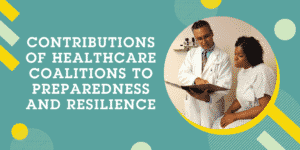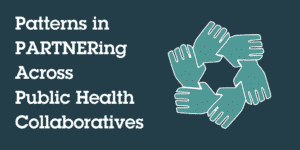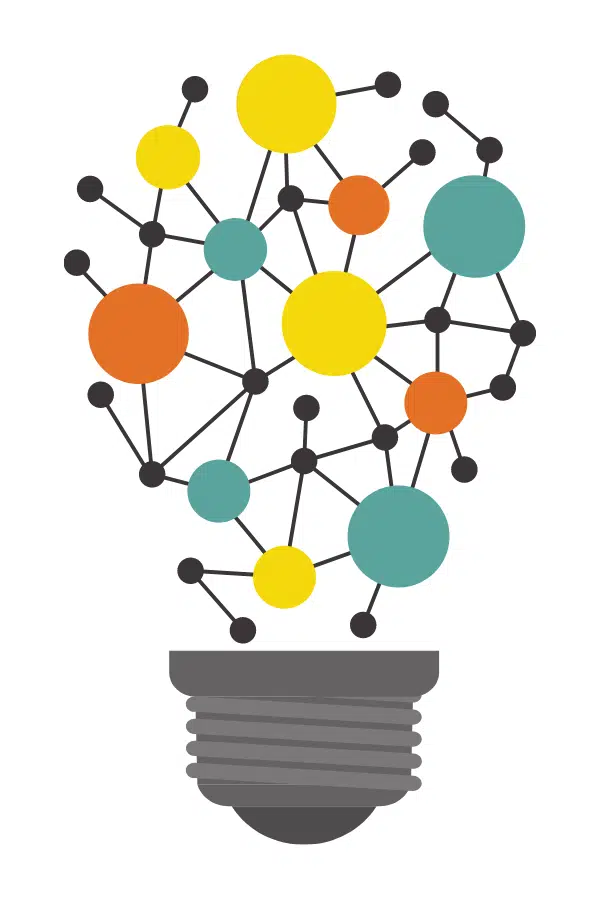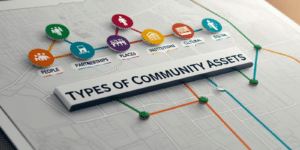Network Research
Try searching for a topic related to building, managing, and evaluating cross-sector coalitions, networks, and community partnerships.
We’ve done a lot of research and written many papers over our decades of time studying networks. Topics range from network governance and communication to network trust and strategies. Here are all our peer-reviewed articles and other scientific papers free to read and use for non-commercial purposes. Check back for new research – we regularly publish new findings and papers.

Hospital Interaction and Investment in Public Health Systems: A Conceptual Study
Background: Health care reform has resulted in changes throughout the health system, including the Affordable Care Act (ACA) and IRS requirements that nonprofit hospitals conduct community health needs assessments and develop implementation plans to guide greater investment in their respective communities. This has led to

How to Identify Success Among Networks that Promote Active Living
Objectives. We evaluated organization- and network-level factors that influence organizations’ perceived success. This is important for managing interorganizational networks, which can mobilize communities to address complex health issues such as physical activity, and for achieving change. Methods. In 2011, we used structured interview and network

Contributions of Health Care Coalitions to Preparedness and Resilience: Perspectives From Hospital Preparedness Program and Health Care Preparedness Coalitions
Objective: The purpose of this article was to describe how the Hospital Preparedness Program (HPP) and other health care coalitions conceptualize and measure progress or success and to identify strategies to improve coalition success and address known barriers to success. Methods: We conducted a structured

Patterns in PARTNERing across Public Health Collaboratives
Abstract: Inter-organizational networks represent one of the most promising practice-based approaches in public health as a way to attain resources, share knowledge, and, in turn, improve population health outcomes. However, the interdependencies and effectiveness related to the structure, management, and costs of these networks represents

Systems of Care for Children with Special Healthcare Needs: A Patient-Centered Approach to Evaluate Public Health Roles
Abstract: Despite the apparent success that local and state health departments have had integrating a public health approach to provide programs and services for families with children who have complex health needs, there continues to be mixed results in terms of satisfaction and degree of
Network analysis of RE-AIM framework: chronology of the field and the connectivity of its contributors
The reach, effectiveness, adoption, implementation, and maintenance (RE-AIM) framework has been widely used for translational research. We used social network analysis (SNA) to explore how innovative research frameworks, such as RE-AIM, have diffused over time in academic literature. A structured literature review was conducted on
The Influence of Teaching Methodology on Student Social Interaction
In this paper, we explore the effects of various teaching methodologies on the social interactions reported by university students in the School of Public Affairs at the University of Colorado Denver. Specifically, we will answer the question: How do different teaching methodologies affect the formation

Analysis of Network Characteristics and Quality of Interactions Among Public Health Collaboratives
While the benefits of collaboration have become widely accepted and the practice of collaboration is growing within the public health system, a paucity of research exists that examines factors and mechanisms related to effective collaboration between public health and their partner organizations. The purpose of

A Systemic Review of Collaboration and Network Research in the Public Affairs Literature
In public health departments across America, teams are building partnerships and networks in their communities to help address the social determinants of health and other upstream community health factors. However, there’s very little in the literature that provides a data-based perspective on network best practices

Theory of Collaborative Policy Networks: Identifying Structural Tendencies
Support for the “democratization of the policy sciences” has led to the development of a number of frameworks and theories to enhance the normative, multidisciplinary approach to policy analysis. However, this approach has been challenged for failing to produce the objective empirical and normative standards

Growth of Partnerships for Patient Safety: A Study of Practice Adoption
In this paper, our team tried to better understand the Growth of Partnerships for Patient Safety, specifically considering their impact on patient safety practice adoption rates. Read the full paper further below and download it for any non-commercial purposes. Objectives. To document the numbers and

Social Network Analysis for Disasters: Issues and Insights Prompted by Post-Katrina Research
It’s long been recognized that social capital and networks play an important role in communities during disaster recovery. This paper sought to better understand the ways we can use social network analysis for disasters to understand the link between social networks and disaster relief and
Didn’t find what you were looking for? Use the search and filter options on the right to conduct a more personalized search, or visit our Network Science Resource Library for complete access to all of our webinars, infographics, articles and research all in one place.
You can also visit our PARTNER Research & Evaluation Example Page to see a few dozen examples of third party studies and evaluations conducted using our tools and software. Network analysis provides a powerful lens for improving collaboration and networking.
We follow a number of peer-reviewed journals to inform and advance our work. Here’s a list of some of the sources we recommend related to network science, public health, collaboration and social impact.
Connect with our Team!
Contact the VNL team to demo PARTNER™ or discuss a research or evaluation project. We can help you learn more about our services, help brainstorm project designs, and provide a custom scope based on your budget and needs. We look forward to connecting!
Email our team: hello@visiblenetworklabs.com
Send a message: Contact Us Here





